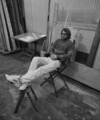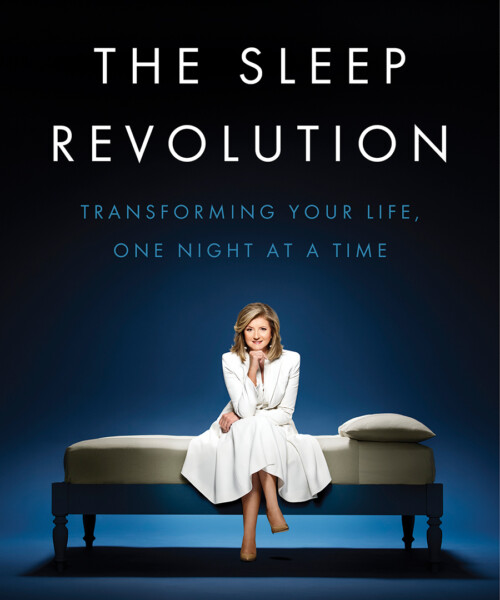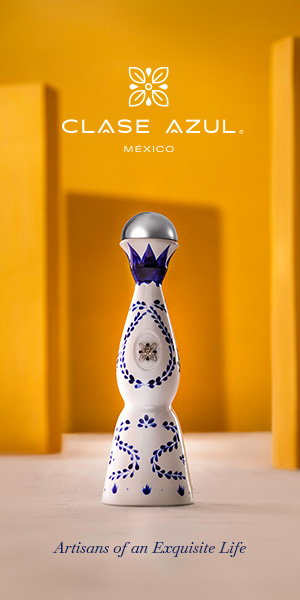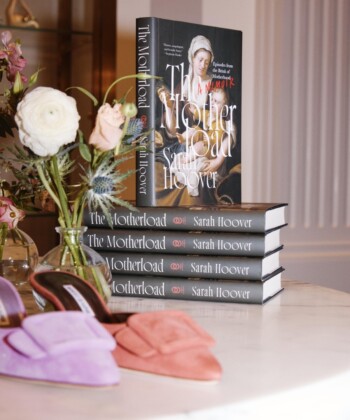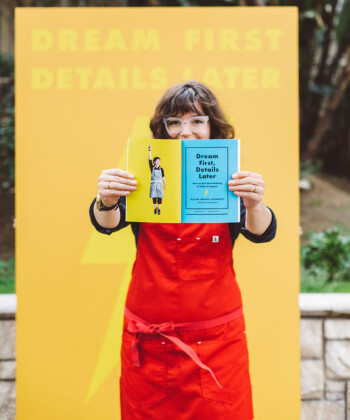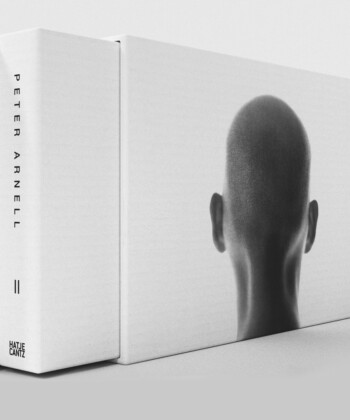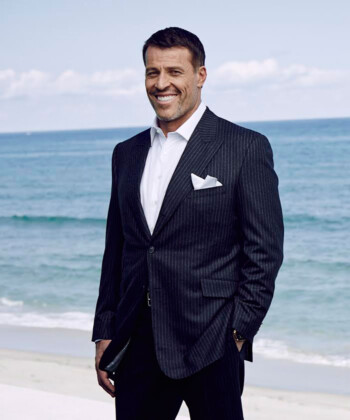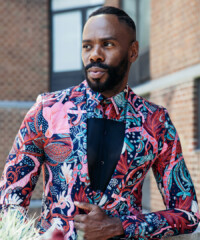In her last book, Thrive, Arianna Huffington explored the definition of success, making the case that the term means more than just financial gain or professional accomplishments. Now, she continues her quest for well roundedness with a deep dive into one of Thrive’s most important elements. In The Sleep Revolution, Huffington explores multiple facets of the phenomenon of sleep, from how society views it to the science behind it. Here, she talks about her tips for getting a good night’s sleep and her plans to overthrow convention when it comes to slumber.
What surprised you the most in your research for this book?
I was stunned by the extent to which the sleep revolution is in full swing in the sports world. It’s no longer a secret that sleep is the ultimate – side-effect-free – performance enhancer. In fact, the elite sports world is helping to demolish our collective delusion that sleep deprivation is the macho, tough, disciplined way to live your life if you want to win. It’s exciting to see more and more world class athletes coming out of the burnout closet to talk openly about how embracing sleep helps them win on the court and in the field.
You’re an advocate of using meditation to relax. How do you do it and is it for everyone?
Actually, one of my favorite times for meditation is in the middle of the night when I’m having trouble sleeping. If I wake up with thoughts crowding my mind, I’ve found meditation to be a great remedy. Instead of stressing out about how I’m staying awake and fearing I’ll be tired the next day, I prop a few extra pillows under me and reframe what’s happening as a great opportunity to practice my meditation. If it’s in the middle of the night, I remind myself that that’s precisely when many avid meditation practitioners, like the Dalai Lama, wake up to get in two or three hours of meditation; this both takes the stress out of my wakefulness and adds an extra layer of gratitude to my practice. Just by reframing it from a problem to a blessing that allows me to go deeper without a deadline or any distractions, I find that I both have some of my deepest meditation experiences and, inevitably, drift off to sleep at some point. Anyone can do it. As Marcus Aurelius wrote in Meditations, it’s a journey that’s always available to us.
How long did it take you to make a mindful bedtime routine a part of your everyday life?
Much too long. For many years, I subscribed to a very flawed definition of success, buying into our collective delusion that burnout is the necessary price we must pay for success. Then, in 2007, I had a painful wakeup call: I fainted from sleep-deprivation and exhaustion, hit my head on my desk, and broke my cheekbone. From that point on, I knew I had to create a mindful bedtime routine. I now treat my transition to sleep as a sacrosanct ritual. Before bed, I take a hot bath with epsom salts and a candle flickering nearby—a bath that I prolong if I’m feeling anxious or worried about something. I don’t sleep in my workout clothes as I used to (think of the mixed message that sends to our brains) but have pajamas, nightdresses, even t-shirts dedicated to sleep. Sometimes I have a cup of chamomile or lavender tea if I want something warm and comforting before going to bed.
There are some exciting guests participating in The Sleep Revolution events on college campuses across the country. Who are you most excited to speak to?
One person I’m particularly excited about speaking with on our Sleep Revolution College Tour is the Golden State Warriors’ Andre Iguodala. We share a passion for sleep evangelism and he’s become an amazing partner, and his message is one that especially resonates among young people and college students who might otherwise be inclined to dismiss sleep.
In the beginning of his career, he paid little attention to his sleep — he’d usually stay up late watching TV and then wake early to hit the gym. This went on until he turned 30. That’s when he told the Warriors’ director of performance he wanted to see a sleep specialist. And he started taking his relationship to sleep much more seriously. He banished devices from his bedroom, he started tracking his sleep, and he began to go to bed earlier. As he put it, “Sleep good, feel good, play good.”
The results? His playing time increased by 12 percent and his three-point shot percentage more than doubled. His points per minute went up 29 percent, his free-throw percentage increased by 8.9 percent, and his turnovers went down 37 percent. And he was named the MVP for the 2015 finals. After which he Instagrammed a picture of himself cradling the MVP award—credit where credit is due—while sleeping!














